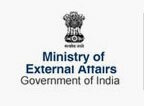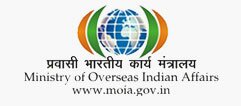India looking East for mutual gain
India looking East for mutual gainPrime Minister of India Dr Manmohan Singh, who is on a visit to Malaysia, says the two governments are lagging behind the growing potential of their countries' ties. Interview in New Delhi by KAMRUL IDRIS.Q: You have in common with Prime Minister Datuk Seri Najib Razak a deep desire for change. How do you see India fundamentally improving its relations with Malaysia and Southeast Asia? A: India and Malaysia have age-old civilisational and cultural ties. In the increasingly interdependent world that we live in, I think there is ever-increasing scope for our two countries to work to promote bilateral relations, to promote regional cooperation through Asean, and to promote and work together in the East Asia Summit. Q: Najib's India visit in January has been described as heralding a new chapter in relations between the two countries. Have expectations been raised too high? A: It was a landmark visit and the prime minister said all the right things. He committed himself along with me to work together to nurture and promote multifaceted economic cooperation, and these are things which need to be done. India's Look East Policy gives a lot of emphasis to our relations with the Asean countries, and Malaysia is one of the most important countries of the Asean region. Therefore, whatever we can say or do, I think is not enough. I believe the sky is the limit in working together to promote trade and investment and promote cooperation in multilateral and regional fora. Q: India has traditionally been seen and looked up to as a champion of non-alignment. Does its tilt to America and the West signal a shift in its foreign policy and international relations? A: We are not tilting in any one direction. The foreign policy of India is an expression of our enlightened national interests. In the globalised world that we live in, the inter-relations and interdependence of nations have increased enormously. Therefore, we seek good relations with all major superpowers – the US, Russia, China, Japan. In our continent, Asean countries have assumed great importance for the orderly management of increased interdependence with Southeast Asia. We, therefore, look to Asean countries to promote trade, investment and multifaceted cooperation. Q: I understand, Prime Minister that some MOUs are going to be signed during your stay in Kuala Lumpur. Which of these, if any, best exemplifies a revitalisation of the two countries' relations? A: I think the most important is our commitment to work to negotiate a comprehensive economic partnership agreement. Q: On the G20, are you in general satisfied with the pace of international economic and financial reform? A: I think the world economy is not really in robust health. There are uncertainties on the horizon. Therefore, on the promise that G20 had held out, I think a lot more remains to be done to realise it. I think the reform of the international financial institutions needs to be pushed at a faster pace than ever before. And the coordination of macroeconomic policies of various major countries of the world is something that is not moving at the pace one would have liked or anticipated in London or in Pittsburgh or even in Toronto. So, I think there is scope for accelerating the pace of reform. Q: There has been talk lately about a currency war and a retreat into protectionism. What do you think are the biggest risks to the world economy at this point? A: I think the biggest risk is that the growth process, which is very fragile, can be derailed. Therefore, it is absolutely essential that all major countries of the world should commit themselves to balanced, sustainable economic growth. Q: India is growing at near 9 per cent this year, widely attributed to the reforms you began as finance minister in the 1990s. Are you satisfied with the results so far and if not what are the most urgent changes you still have to effect as prime minister? A: One can never be satisfied. We have a long way to go in removing the ills of chronic and mass poverty in our country, but I do feel we are on the right track. In the current fiscal year, we hope to achieve a growth rate of over 8.5 per cent. Overall, the Indian economy has performed well despite the effects of the global economic crisis and the severe drought last year. In the current Five Year Plan, we expect to achieve an annual average growth rate of over 8 per cent, which is the highest ever in any Plan period. Our objective is not just growth, but to achieve inclusive growth. To do so, we need to accelerate the growth rate to 9 to 10 per cent on a sustainable basis. We are making continual improvements in our policy regime and implementation procedures. Our priority is to focus on agriculture, infrastructure, health and education. I would be the last to say that there is no scope for reforms. I think we need to move ahead in reforming our financial system. We need to move ahead to put in place a reformed direct tax system, and also a reformed indirect system which would lay a lot more emphasis on goods and services tax as the major source of revenue from indirect sources. Q: India now has world-beating companies. Yet it is believed that they are held down by an inefficient bureaucracy and antiquated political culture. How do you see the private sector evolving as the motor of economic growth in the coming years? A: India has had a long history of an active entrepreneurial class and a culture of private enterprise. This has always played an important role in our economy. Since we initiated reforms nearly 20 years ago, we have used various policy instruments to facilitate private sector participation in all economic areas. Indian companies today are among the most entrepreneurial and competitive globally. We have liberalised the FDI regime because we also welcome and need foreign investment, capital, technology and skills for our development plans. We want to ensure a policy framework that is transparent, predictable, simple and reduces regulatory burden. Q: When do you expect a comprehensive free trade agreement to be signed between India and Malaysia and Asean? A: We are quite keen to sign a comprehensive free trade arrangement with the Asean countries. The goods section is in place. We sincerely hope that all of us have the political will to move ahead with the remaining part of the free trade area in services as well as investments. India and Malaysia have successfully concluded negotiations on the text of the India-Malaysia Comprehensive Economic Cooperation Agreement (CECA). Both sides hope to conclude the remaining steps and internal approval processes in the very near future. It is my hope that the agreement will come into force next year. I am confident that the bilateral arrangement will qualitatively transform our economic relations and boost trade and investment flows between India and Malaysia. We have also signed the India-Asean Trade-in-Goods Agreement in August 2009. This was the first step in our objective of creating an India-Asean Regional Trade and Investment Area. We attach high importance to the early conclusion of negotiations on the trade-in-services and investment agreement. Both sides are engaged in intensive negotiations, and we hope that a mutually beneficial and high quality agreement can be reached soon. Q: Malaysians, along with many others, are very keen to do business in India but have misgivings about its red tape and other real or imagined risks. What would be your advice to Malaysian businessmen? A: Our government is making continuous efforts to improve and streamline the policies and procedures for foreign companies to do business in India. We have taken a number of significant measures to liberalise the investment regime and simplify procedures for foreign companies. With the entry into force of the CECA with Malaysia next year, there will be much greater opportunities for the Malaysian business community in the Indian market. We are already seeing participation by Malaysian companies in several projects in the highways, power and airports sectors. The new airports in Hyderabad and New Delhi and the ongoing monorail project in Mumbai are shining examples of our business cooperation. This will set the pace for other projects in the future. The sustained growth of the Indian economy and significant new demands in the infrastructure sector present an excellent opportunity for Malaysian companies in the coming years. We welcome investments by Malaysian businesses. Q: In China, to which India is inevitably compared, Malaysian businesses are involved in projects and partnerships large and small, in many parts of the country. Dare Malaysians hope that India will open itself to the same extent, especially since its growth is forecast to exceed China's in the next decade? A: India and China have followed different models of growth that are suited to their domestic requirements. Our FDI regime in both manufacturing and services is liberal and increasingly oriented to requirements of foreign businesses. We received about US$35 billion in foreign investment in the last financial year, and we hope that this figure will grow. According to global agencies, India is one of the three most popular destinations for FDI. We are among the world's fastest growing economies. It is our ambition to grow at 9 to 10 per cent per annum in the next decade, which will create huge new opportunities for business between India and Malaysia. There are several examples of joint ventures which are doing business in third countries as well. I urge Malaysian companies and businesspersons to take a long-term and strategic view of the Indian economy and market. Q: Lack of infrastructure appears to be the biggest bottleneck to India's economic growth and development. An enormous spending programme has been announced, yet the projects are reportedly mired in government over-regulation and excessive control. Are new mechanisms being devised to expedite the process? A: I agree with you that infrastructure is an impediment and we are fully conscious of this. We have announced a massive spending programme for infrastructure development. I am conscious that it cannot be done by government alone because the resources required are huge. The strategy for infrastructure development therefore involves a combination of public investment supplemented by private investments through the public-private partnership route. We have developed a robust framework for PPP projects which balances the legitimate requirements of the investors and the needs of the users. The strategy is working reasonably well. The telecoms sector is the most compelling example. Malaysian companies are already participating in our highway and power projects. We welcome much more participation from Malaysia. We will continue to improve the terms and conditions on which PPP projects are awarded to ensure that the process is transparent, bidding is competitive and at the same time public interest is adequately safeguarded. Q: Malaysian contractors have been engaged in infrastructure projects and want to bid for more. Are you satisfied with their performance so far? A: The successful joint venture between GMR and Malaysian Airports Holdings in the New Delhi and Hyderabad airports is an excellent example of work done by your companies. Corporations like IJM, Mudajaya, UEM, Sapura Crest and Scomi are some of the big Malaysian companies which are working on projects in the highways, power, monorail, metro and petroleum sectors. Malaysian companies enjoy a good reputation in India. We invite them to look at new opportunities, including in the Delhi-Mumbai Industrial Corridor. Q: Diplomats describe Malaysia's increased interest in India as nothing new, merely a return to the close relations between the two countries established by first prime ministers Jawaharlal Nehru and Tunku Abdul Rahman. Times have changed since then. How does India now view the bilateral relationship and what is being expected of it? A: It is true that the first prime ministers of India and Malaysia laid a strong foundation for our ties based on shared history and common values. We have no outstanding issues between us, and there have always been friendly sentiments between our two peoples. At the same time there is now a new momentum driving our bilateral ties in the 21st century. There is mutual recognition that a closer and deeper engagement in the economic, political, cultural and educational fields will benefit both sides. During Prime Minister Najib's visit to India earlier this year, we agreed to establish a strong partnership and give it a strategic orientation. My visit this year is a clear reflection of our common desire to consolidate this partnership. We attach high priority to our ties with Malaysia. Q: India's troubled relations with Pakistan can be problematic for the allies of both countries to negotiate. Do you envisage a significant reduction in tensions between the two nuclear-armed neighbours in the near future? A: India is committed to resolving all outstanding issues with Pakistan through dialogue in the interest of peace and prosperity of our people. I met the prime minister of Pakistan on the sidelines of the SAARC Summit in Bhutan in April this year. Both of us have charged our foreign ministers and foreign secretaries with the responsibility of working out the modalities for restoring trust and confidence in the relationship and paving the way for a substantive dialogue on all issues of mutual concern. Q: Malaysia and India have worked closely in international and multilateral diplomacy on matters of common interest as well as those of the developing world as a whole. Will, for example, India lead in the restarting of the Doha Round of trade talks and push for a fairer deal for poor countries in the globalised economy? A: It is important for all countries to commit to a fair and rule-based trading system. We will be ready to support global efforts to move forward the Doha Round of talks. A development-oriented, balanced and successful conclusion of the Round at an early date would bolster the credibility of the multilateral trading system. Specifically, we should avoid protectionism at all costs. This is even more important now that the global economic recovery process is underway. (The NSTP Group is part of the Media Prima portfolio of companies and is the nation's longest running and largest newspaper publishing company, reaching five million Malaysians daily. While our heritage keeps us rooted, our current transformation programme is designed to take partnership with all our stakeholders to new heights) |





